Bossa nova is a style of Brazilian music, which was developed and popularized in the 1950s and 1960s and is today one of the best-known Brazilian music styles abroad. The phrase bossa nova means literally "new trend" or "new wave". A lyrical fusion of samba and jazz, bossa nova acquired a large following in the 1960s, initially among young musicians and college students.

Antônio Carlos Brasileiro de Almeida Jobim, also known as Tom Jobim, was a Brazilian composer, pianist, songwriter, arranger and singer. Widely considered as one of the great exponents of Brazilian music, Jobim internationalized bossa nova and, with the help of important American artists, merged it with jazz in the 1960s to create a new sound with remarkable popular success. As such he is sometimes known as the "father of bossa nova".
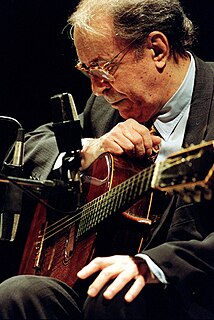
João Gilberto, was a Brazilian singer, songwriter, and guitarist, who was a pioneer of the musical genre of bossa nova in the late 1950s. Around the world he was often called "father of bossa nova"; in his native Brazil, he was referred to as "O Mito".

Getz/Gilberto is an album by American saxophonist Stan Getz and Brazilian guitarist João Gilberto, featuring pianist and composer Antônio Carlos Jobim, who also composed many of the tracks. It was released in March 1964 by Verve Records. The album features the vocals of Astrud Gilberto on two tracks, "Garota de Ipanema" and "Corcovado". The artwork was done by artist Olga Albizu. Getz/Gilberto is a jazz and bossa nova album and includes tracks such as "Desafinado", "Corcovado", and "Garota de Ipanema". The last received a Grammy Award for Record of the Year and started Astrud Gilberto's career. "Doralice" and "Para Machucar Meu Coração" strengthened Gilberto's and Jobim's respect for the tradition of pre-bossa nova samba.

Jazz Samba is a bossa nova album by Stan Getz and Charlie Byrd released by Verve Records in 1962. Jazz Samba signaled the beginning of the bossa nova craze in America. Stan Getz was the featured soloist and the tracks were arranged by Charlie Byrd, who had first heard bossa nova during a tour of Brazil in 1961.
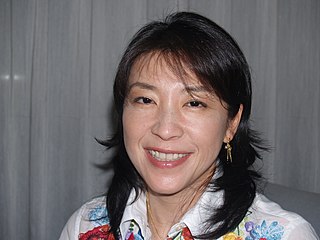
Lisa Ono is a popular Brazilian-Japanese bossa nova singer.
The Waters of March is a Brazilian song composed by Antônio Carlos Jobim (1927–1994) in 1972. Jobim wrote both the English and Portuguese lyrics. The lyrics, originally written in Portuguese, do not tell a story, but rather present a series of images that form a collage; nearly every line starts with "É...". In 2001, "Águas de Março" was named as the all-time best Brazilian song in a poll of more than 200 Brazilian journalists, musicians and other artists conducted by Brazil's leading daily newspaper, Folha de S.Paulo. It was also voted by the Brazilian edition of Rolling Stone as the second greatest Brazilian song.

Oscar Castro-Neves, was a Brazilian guitarist, arranger, and composer who is considered a founding figure in bossa nova.
"Samba de uma Nota Só" is a bossa nova song composed by Antônio Carlos Jobim with Portuguese lyrics by Newton Mendonça. The English lyrics were written by Jon Hendricks. It was first recorded by João Gilberto in 1960 for his album O Amor, o Sorriso e a Flor.

Cannonball's Bossa Nova is a 1962 album by jazz musician Julian "Cannonball" Adderley. First released on Riverside in 1963, the album was reissued on Capitol Records several times with different covers and titles.
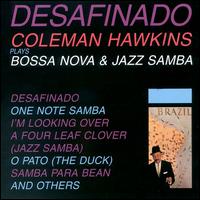
Desafinado is an album by American jazz saxophonist Coleman Hawkins featuring performances recorded in 1962 for the Impulse! label.

I Love Brazil! is a 1977 studio album by Sarah Vaughan, accompanied by prominent Brazilian musicians Milton Nascimento, Dori Caymmi and Antônio Carlos Jobim.
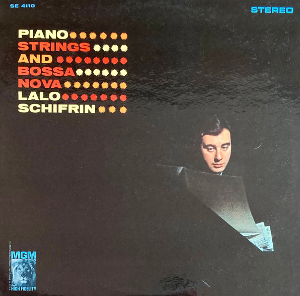
Piano, Strings and Bossa Nova is an album by Argentine composer, pianist and conductor Lalo Schifrin recorded in 1962 and released on the MGM label.

Do the Bossa Nova with Herbie Mann is an album by American jazz flautist Herbie Mann recorded in 1962 for the Atlantic label.

Trombone Jazz Samba is an album by jazz trombonist and arranger Bob Brookmeyer featuring bossa nova compositions recorded in 1962 for the Verve label.
"Once I Loved" is a bossa nova jazz standard composed in 1960 by Antônio Carlos Jobim, with lyrics by Vinícius de Moraes. Words in English were later added by Ray Gilbert. In a few early cases, the song was also known as, a translation into English of the original Portuguese title.
"Só Danço Samba" is a bossa nova song composed in 1962 by Antônio Carlos Jobim, with lyrics by Vinicius de Moraes. English lyrics were later written by Norman Gimbel. On occasion, it has also been known as "Jazz Samba" and "I Only Dance Samba", an English translation of the original Portuguese title.

Rain Forest is a 1966 album by Walter Wanderley.
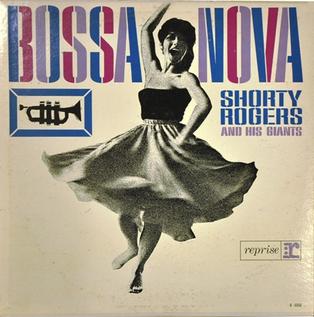
Bossa Nova is an album by American jazz trumpeter, composer and arranger Shorty Rogers, released on the Reprise label in 1962.

Luiz Bonfá Composer of Black Orpheus Plays and Sings Bossa Nova is a 1962 album by Luiz Bonfá arranged by Lalo Schifrin.















